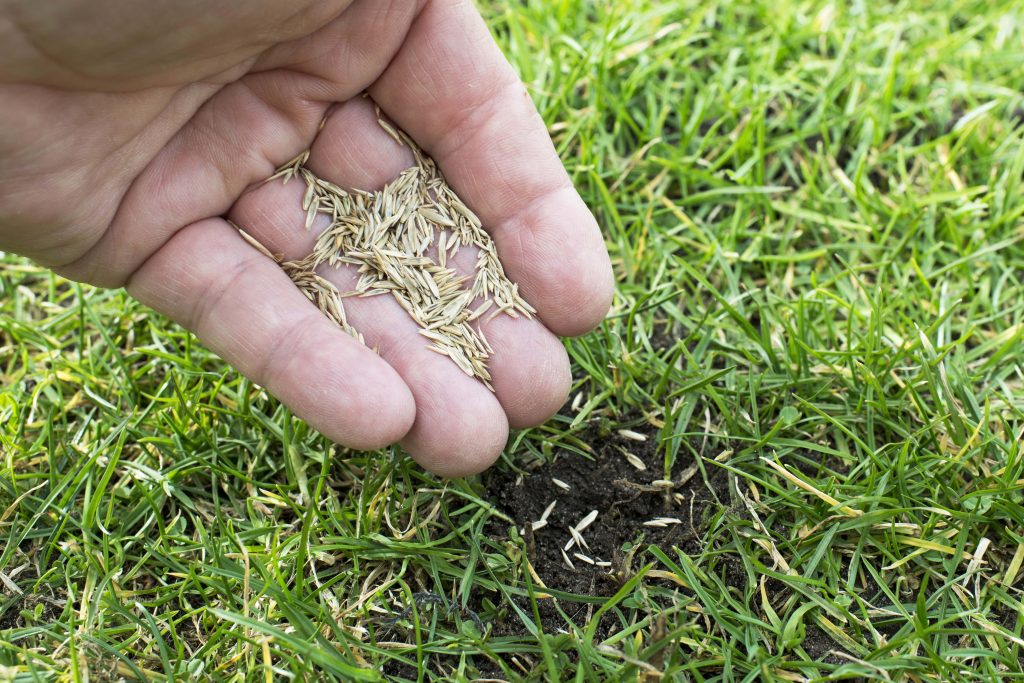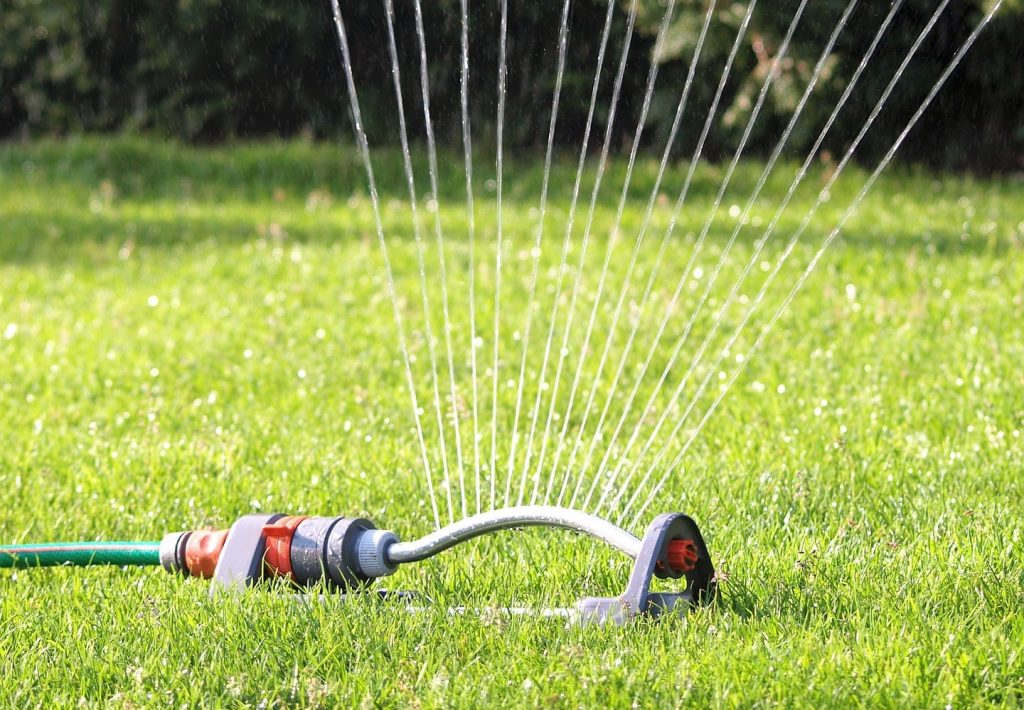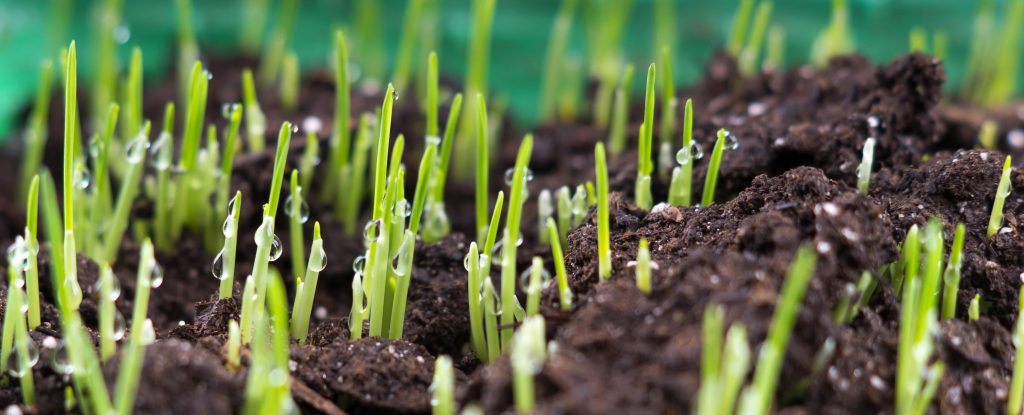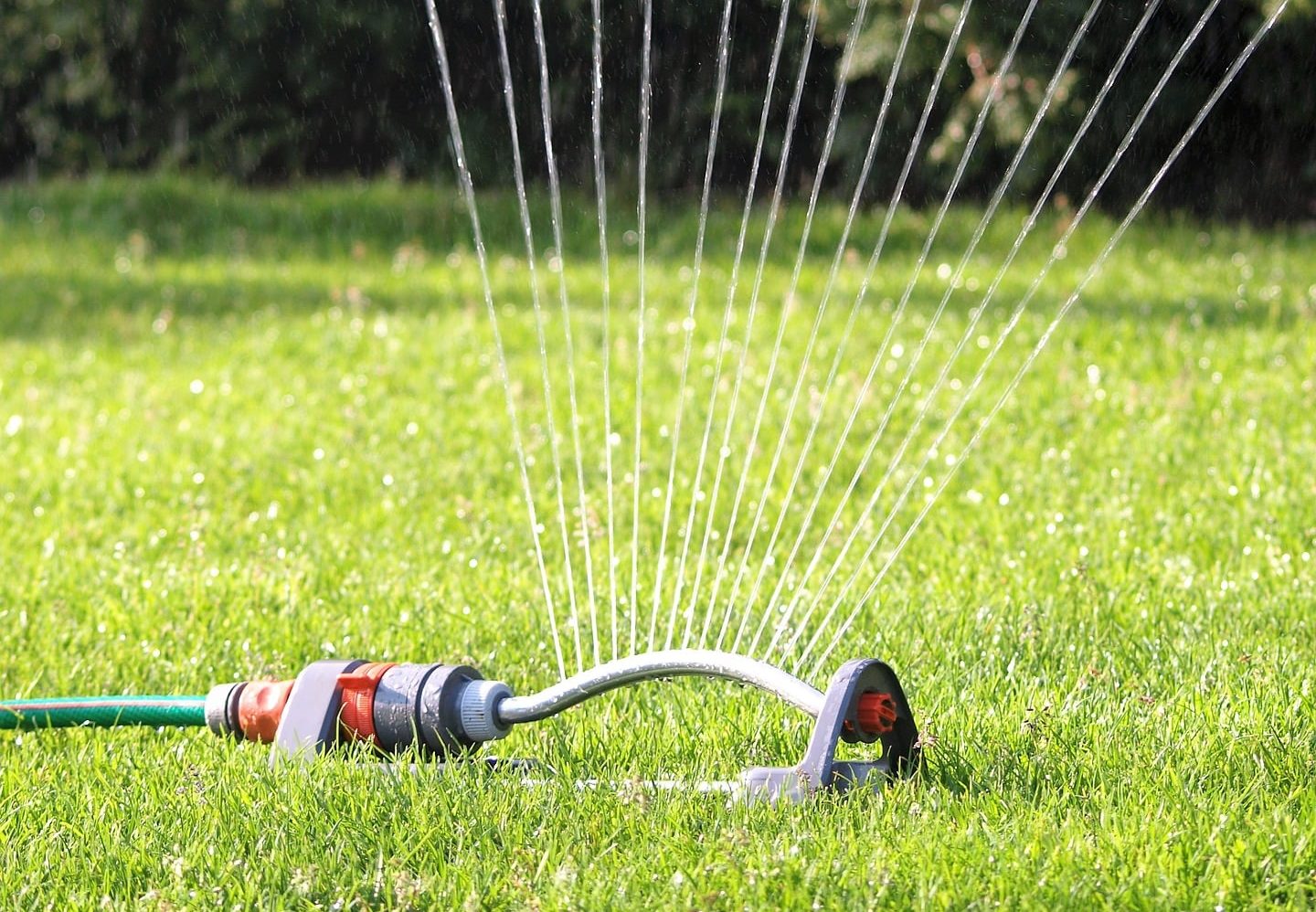If you’ve just sown new grass seeds, you might be aware that they need a lot of water.
But exactly how often do you need to water grass seeds, and how much water should you give them? And when they begin growing, should you keep watering them a lot?
In this guide, we’ve explained how often to water your lawn when you’ve just spread grass seeds, at each stage of the seeds’ growth.
When you’ve just sown your grass seeds

Immediately after sowing your grass seeds, you want to give them a thorough soaking.
Water the seeds you have scattered until the ground is very moist, but not so much that you’re creating puddles. You want to give the ground about 1-2 inches of water, depending on how dry or wet the soil already is.
You might like to water the ground before spreading the seeds, to help them stay in position, and begin sinking into the soil immediately. This is helpful if the weather is windy and the ground is bare and dry, and you’re afraid of the seeds blowing away. However, you don’t have to do this, especially if the soil is slightly damp already, or if you’re overseeding an existing lawn.
At this stage, you may also like to put some burlap sheets over the lawn, to prevent birds from eating the seeds, and to reduce evaporation. However, this isn’t strictly necessary if you think your seeds will fare fine exposed to the elements.
The next few weeks

For the next two weeks or so, you want to water your grass seeds at least once a day, and ideally twice daily. Give them a good soaking once again, until the soil is moist, but it doesn’t need to be quite as moist as when you initially sowed the seeds.
This is because in the first step, one of the main goals is to push most of the seeds into the soil, helping them to grow. However, this time you just want to provide the seeds with the moisture they need.
Until your seedlings germinate, you should give them about half an inch of water each morning and early afternoon if the weather is hot, or every morning if the weather is mild.
Remember, you don’t want to leave your lawn extremely wet overnight, as this can lead to fungal diseases growing on your grass. This is why the early afternoon is the latest time you want to water your lawn.
The exact amount of watering you need to do will depend on how hot it is, how fast the water is evaporating, and the type of soil you have. For example, sandy soils will drain faster than clay soils, because they’re less compacted. Therefore, they will need a bit more water added each time you get out the hose, or set up the sprinkler.
After your grass seeds germinate

After the grass seeds germinate, and you begin to notice sprouts growing out of the soil, you don’t have to water them as much. However, you should still try to water your lawn a bit more than you normally would, given the season.
For example, in the summer, you want to add about an inch of water each week, if it’s not raining. With new grass seeds growing through, you might like to water your lawn every day, and occasionally every other day. In the spring/autumn, you can get away with watering your lawn every 2-3 days or so, if there has not been any rain recently.
Grass seeds typically take about six to eight weeks to grow fully. During this time, you can gradually taper off your watering, until you’re watering your lawn just as much as normal by the time the new grass has fully developed.
What happens if you over-water grass seed?
Grass seeds need moisture and light in order to grow, but they also need air as well.
If you water your grass seed too much, it may drown, and eventually rot in the soil. Also, if you have a sloped garden, over-watering your seeds may wash some of them away, leading to patchy grass growth.
Therefore, it’s important to avoid watering your grass seeds too much. You want to avoid creating puddles, or areas of mud. Instead, water until the first inch or two of topsoil is nice and damp, but not underwater.

I’m Josh, and I’m the head writer at Lawn Care Pro.
I love everything lawns, but I’m a bit of a lawn mower nerd. I spend a lot of my free time tinkering with mowers, and planning my mowing schedule for the next few weeks.
I’m also into cars, which comes in very helpful when servicing a mower engine!

